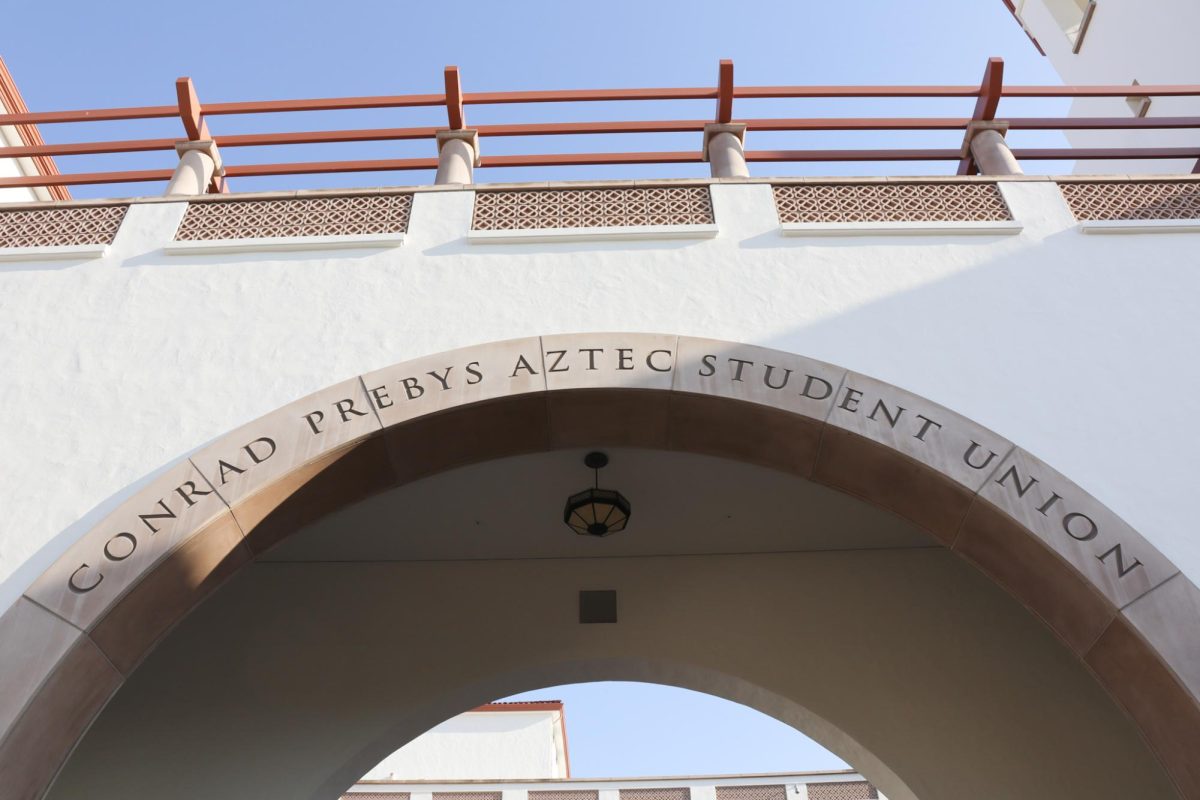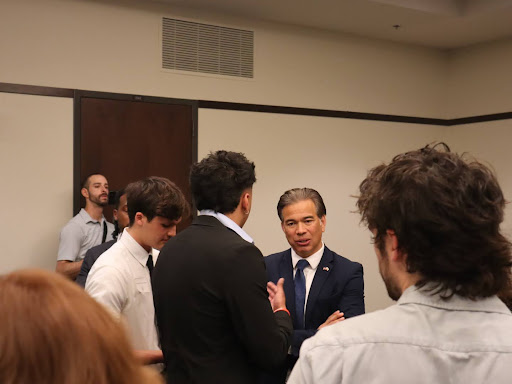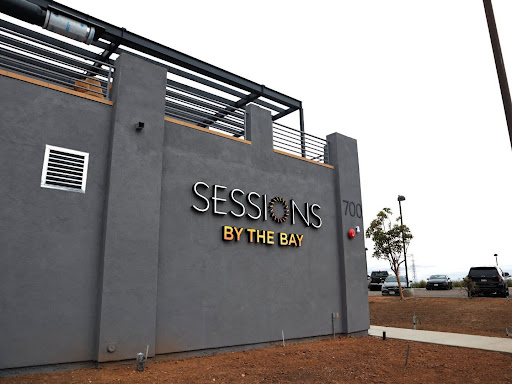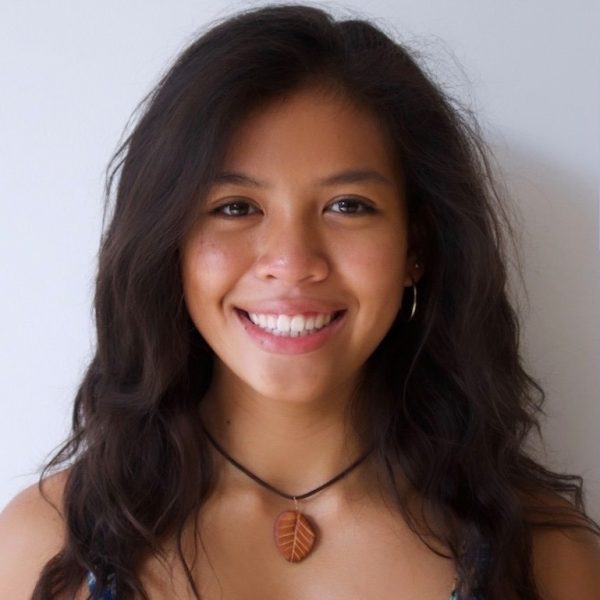With the rising cost of living in San Diego, many students have sought out employment to manage their finances. Each year, many San Diego State students work on campus with roles ranging from front desk work to Associated Students and even to paid research opportunities.
Below is a guide to finding on campus employment as we detail the variety of roles offered to students.
Who is eligible to work on campus?
According to San Diego State’s Department of Human Resources, undergraduate students enrolled in at least six academic units and graduate students enrolled in at least five academic units are eligible to work on campus.
International students may also be eligible to work on campus if they are approved to work within the United States, however they will be required to provide proof of eligibility from SDSU’s International Student Center.
What is “Work Study” and how do I know if I am eligible for it?
Federal Work-Study (FWS) is a form of financial aid that provides students with part time jobs to pay for education expenses. Anyone who completes the Free Application for Federal Financial Aid (FAFSA) is automatically screened for FWS eligibility.
If a student is eligible for FWS, then it should show up in their My.SDSU financial aid summary. Some jobs on campus may be designated for FWS eligible students only, so be sure to pay attention when applying to different opportunities.
The California Coast Student Financial Center on campus has a virtual front desk where students can ask questions about their financial aid, including FWS eligibility and the work study job finding process.
What are the benefits of working on campus?
Working on campus allows many students to have flexible schedules that align with their classes and other commitments, as most campus employers understand that their employees are students first.
Some on-campus jobs allow students to work as little as five hours a week or as much as 20 hours a week. On-campus jobs can also take the stress out of commuting, especially for first year students living on campus, who are not allowed to have cars on campus. Student workers can also choose a schedule that coordinates with when they are on campus, and the quick “commute” helps save time.
Dylan Diaz, a fourth-year Management Information Systems major, has worked at the Aztec Market location near Cuicacalli suites for over two years.
“I like how the Aztec market works with my school schedule, so the added benefit of an Aztec Shops job working with you is really great,” Diaz said. “Being able to practice talking with coworkers, my boss and customers has helped me become confident in communicating and coordinating with other people in a job setting.”
Diaz noted that another benefit of working on campus is the ability to make new connections with students, staff, and faculty.
“I also like working with other students,” Diaz said. “The customers and coworkers are all in the same range as me, so it made it easier for me to be myself and have fun with the job because we all share the same struggles of going through college, as well as the same interests.”
What are the cons of working on campus?
The California State University (CSU) system has a policy that does not allow students to work more than 20 hours a week on campus. This also means if a student holds more than one job on campus, their combined weekly hours from all jobs must be 20 or fewer.
However, students can work up to 40 hours a week during academic breaks.
What kind of jobs are available?
San Diego State offers a variety of student positions across its departments and auxiliaries including within Aztec Shops/Dining, KPBS, Associated Students, Library and Information Access, University Police and the SDSU Research Foundation.
Students can also choose to work for the Aztec Recreation Center, Snapdragon Stadium, resource and identity centers, colleges, residential communities and more. With these roles, students will work in customer service assisting other students and managing the various facilities around campus.
There are even opportunities for paid leadership positions such as, president, treasurer and secretary of various disciplines within Associated Students. These roles allow students to take a step towards becoming leaders, and for many, these jobs provide a real-world experience that translates into many disciplines.
In her role as A.S. Government Secretary, fourth-year student Bella Todd assists A.S. councils with administrative duties such as preparing agenda packets, drafting minutes and posting meeting agendas online.
“Associated Students has greatly helped me develop the skills necessary for working in an office setting. Additionally, I have gained a better understanding of office culture, which will prepare me for future leadership roles. With Associated Students, it feels like a family that truly cares- they want students to develop professionally and become working members of society,” Todd said.
Many student employment opportunities allow students to gain valuable work experience, and some jobs are even specialized to a student’s major, allowing for professional development.
Where can prospective student workers find employment opportunities?
Any student seeking employment should check Handshake, an app designed for students looking for job opportunities. SDSU’s partnership with Handshake allows students to conveniently log in with their SDSU credentials to view active employment opportunities both on and off campus. Associated Students posts open positions utilizing this platform in addition to their job listings directly on the A.S. website.
However, not all university departments and auxiliaries utilize Handshake. The SDSU Research Foundation and Aztec Shops post job listings on their individual websites.
What deadlines should students keep in mind when job hunting?
On-campus jobs typically seek out students during the summer before a new academic year; however, there are always jobs being posted throughout the semester.
Students who are looking for fall employment should look at Handshake and Associated Students as soon as possible for the best pool of on-campus opportunities.
“If there’s one piece of advice I could give to potential student workers, it’s to be mindful of not overworking- find a job that is willing to accommodate you,” Todd said. “At the end of the day, you’re a student first.”









